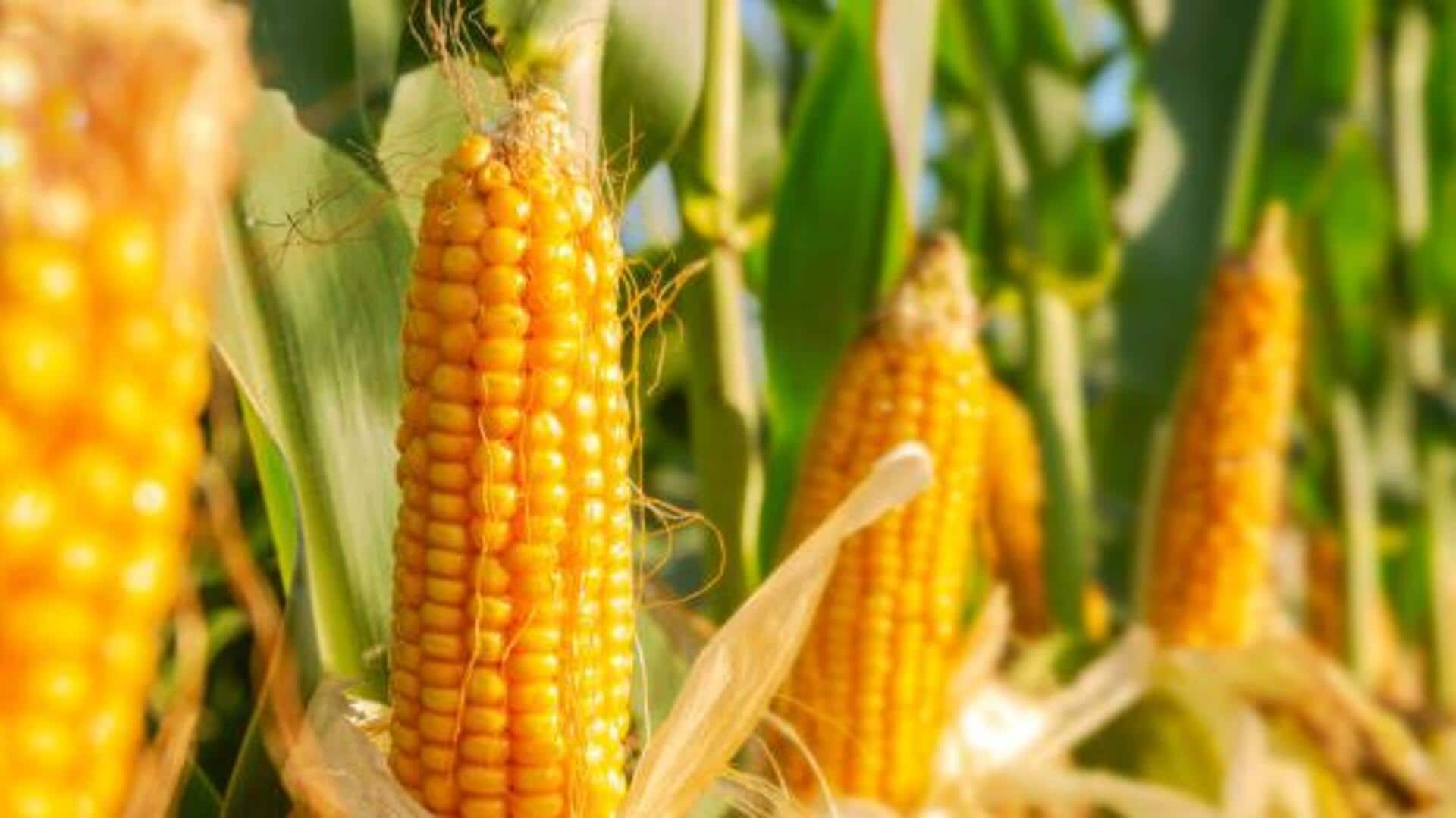
Maize farming: 5 tips to boost productivity
What's the story
African maize cultivation faces distinct challenges, particularly in fine-tuning irrigation practices for improved yield and food security. This article details practical tips for improving irrigation techniques across Africa, with an emphasis on water conservation, soil health, and the adoption of innovative technologies. By offering insights on the same, it hopes to guide farmers towards making informed choices about their irrigation practices, improving productivity, and sustaining maize farming.
Soil moisture
Understanding soil moisture needs
Knowing the exact moisture requirements of maize is key to effective irrigation. Maize needs uniform moisture levels through its growing stages to flourish. Farmers should track soil moisture frequently with basic equipment such as tensiometers or advanced sensors. By keeping optimal moisture levels, farmers can avoid under-watering and over-watering, which can affect yields or even lead to crop failure.
Drip systems
Implementing drip irrigation systems
Drip irrigation systems provide an accurate way to deliver water directly to the roots of plants. The technique reduces the amount of water wasted due to evaporation and runoff as compared to traditional techniques such as flood irrigation. Installing drip systems may seem like an initial investment but can result in substantial long-term savings in terms of water usage and increased crop yields.
Rainwater harvesting
Utilizing rainwater harvesting techniques
Rainwater harvesting is a sustainable practice that can help fill irrigation gaps during dry spells. Farmers can store rainwater collected from rooftops or other surfaces into storage tanks for later use in their fields. This way, groundwater is saved and an additional source of water can be utilized during the critical growth phases of maize.
Mulching benefits
Adopting mulching practices
Mulching is the practice of covering the soil with organic materials, such as straw or leaves, to keep moisture trapped and reduce evaporation rates significantly. It also suppresses weed growth, which competes with crops for nutrients and water resources, and improves overall soil health by adding organic matter over time.
Weather insights
Leveraging weather forecasts
Using accurate weather forecasts enables farmers to plan their irrigation schedules accordingly according to expected rainfall patterns or temperature changes. These can negatively impact crop development stages if not taken care of. Timely interventions, like modifying watering frequency accordingly when needed, prevent wasting precious resources. This way, you avoid the adverse effect of unforeseen circumstances on productivity. Rather, it positively impacts outcomes, eventually resulting in the successful accomplishment of the desired end result.